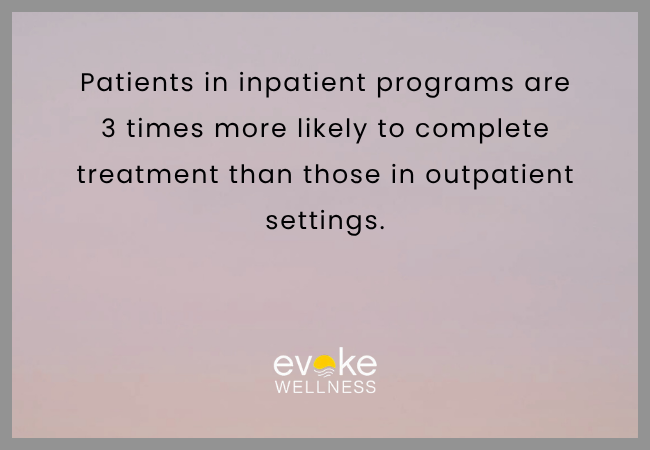When faced with the reality of needing professional help for substance use or mental health issues, one of the first major decisions individuals and their families must make is choosing between residential rehab and outpatient treatment. Both types of care are essential to the continuum of recovery and offer powerful tools for healing. However, the best choice depends on a variety of personal factors, including the severity of symptoms, the presence of co-occurring disorders, support systems, and readiness for change.
Understanding the differences between these two options is critical. While both focus on long-term wellness and stabilization, they offer different structures, intensities, and approaches. Let’s explore how residential rehab and outpatient treatment differ and how you can make the right choice for yourself or a loved one.
The Structure of Residential Rehab
Residential rehab, also known as inpatient treatment, involves staying at a facility 24/7 for a designated period of time. This immersive environment removes individuals from daily stressors, environments, and triggers that can contribute to relapse or worsen mental health conditions.
Within residential care, individuals participate in a range of therapeutic activities: one-on-one counseling, group therapy, skills training, and wellness services such as yoga or nutritional support. These programs are highly structured and designed to provide consistency, safety, and intensive psychological support.
For people experiencing severe addiction or debilitating mental health symptoms, residential treatment offers the benefit of round-the-clock care and supervision. In such cases, the ability to disconnect from everyday responsibilities and distractions can be a life-saving opportunity to focus solely on recovery.
One of the key advantages of Residential Mental Health Treatment in Miramar, Florida is the opportunity to recover in a safe, supportive environment guided by trained professionals who address the physical, emotional, and psychological needs of each individual.
What Is Outpatient Treatment?
Outpatient programs offer the flexibility of receiving treatment while continuing to live at home or in a sober living environment. Participants attend scheduled sessions throughout the week, which may include therapy, group counseling, psychiatric care, and skill-building workshops.
Outpatient treatment can vary in intensity. Standard outpatient programs may involve just a few hours per week, while more rigorous formats like partial hospitalization and intensive outpatient programs provide daily or near-daily support.
This option is often recommended for individuals with a strong support system at home, who are medically stable, and who may have already completed a residential program. It allows for a more seamless integration of recovery work into everyday life, which can help in gradually applying learned skills to real-world challenges.
In particular, Intensive Outpatient Treatment in Miramar, Florida provides a structured therapeutic environment for clients who need significant care but also benefit from maintaining their daily responsibilities such as work or family obligations.
Comparing Support and Supervision
One of the biggest distinctions between residential and outpatient care lies in the level of supervision provided. In residential treatment, medical and mental health staff are available 24/7, ensuring immediate response to any complications, crises, or needs that arise. For individuals struggling with intense cravings, suicidal thoughts, or co-occurring conditions, this constant support can be vital.
Outpatient treatment, on the other hand, assumes a higher level of stability and self-regulation. Clients must take personal responsibility for attending sessions, avoiding relapse triggers, and staying accountable. This format promotes autonomy but requires a solid foundation and motivation.
Outpatient services also vary in supervision levels. For example, a Partial Hospitalization Program in Miramar, Florida offers more comprehensive daily care than a traditional outpatient program, making it a viable option for those who need consistent support without overnight stays.
The Role of Co-Occurring Disorders
Dual diagnosis—or the co-occurrence of a mental health disorder and substance use disorder—complicates treatment and requires an integrated approach. Conditions like anxiety, depression, PTSD, or bipolar disorder often contribute to or stem from addiction, making it essential to treat both simultaneously.
Residential rehab is often the more appropriate option for dual diagnosis because of its structured environment, therapeutic depth, and access to both medical and psychiatric care. At Evoke Wellness, multidisciplinary teams work together to provide holistic treatment, ensuring that both aspects of an individual’s condition are addressed.
However, outpatient programs can also be tailored to meet the needs of dual diagnosis clients, especially when symptoms are stabilized. The flexibility of Mental Health Treatment Programs in Miramar, Florida allows individuals to receive therapy and medication management while still maintaining engagement with their family and community.
Lifestyle and Logistical Considerations
Choosing the right level of care isn’t only about symptom severity—it also involves logistical and lifestyle factors. Residential rehab requires a full-time commitment and may mean stepping away from work, school, or family obligations for weeks or even months. While this break can be incredibly therapeutic, it’s not always feasible for everyone.
Outpatient programs provide a practical solution for those who cannot leave their responsibilities behind. They allow individuals to receive treatment while continuing to work or care for loved ones. However, this flexibility also demands more self-discipline and personal responsibility.
Many clients benefit from starting with residential rehab and then transitioning to outpatient care, ensuring a step-down approach that allows them to practice recovery skills with increasing independence.
Healing in a Therapeutic Environment
Environment plays a powerful role in recovery. Residential treatment centers are designed to be safe, nurturing, and free of distractions. Clients can focus fully on their healing without external pressures. The residential setting also fosters peer support, where individuals build connections with others on similar journeys.
That said, outpatient treatment offers the opportunity to remain connected to one’s community while building a support network through therapy and group work. Over time, these relationships can become a vital part of relapse prevention and long-term mental wellness.
A well-rounded Behavioral Health Treatment Center in Miramar, Florida can offer both residential and outpatient services, creating a continuum of care tailored to the client’s evolving needs.
Why Choose Evoke Wellness?
At Evoke Wellness, we understand that no two recovery journeys are alike. That’s why we’ve built our programs around individualized, compassionate care that respects your personal history, goals, and challenges. Whether you require the structure and supervision of residential treatment or the flexibility of outpatient care, our team is here to help you navigate your options with clarity and confidence.
What truly sets us apart is our commitment to a whole-person healing model. Our clinicians, therapists, and medical staff collaborate closely to support every facet of your wellness—mental, physical, emotional, and social. We provide a safe and inclusive space where you can process trauma, build coping skills, and reclaim your sense of identity, free from judgment or stigma.
In our Mental Health Treatment Center in Miramar, Florida, we offer access to evidence-based therapies, medication-assisted treatment when needed, and robust peer support—all delivered in a peaceful and restorative setting. We also recognize the importance of aftercare and continued support, helping you transition from one level of care to another seamlessly. Whether you’re just beginning treatment or stepping down from residential care, our programs are designed to meet you where you are and guide you forward.
Our staff isn’t just trained—they’re dedicated. Many are in recovery themselves or have walked alongside loved ones in recovery, giving them an unmatched depth of empathy and insight. From the moment you walk through our doors, you’ll feel the difference: warmth, professionalism, and genuine human connection.
Conclusion
Choosing between residential rehab and outpatient treatment is not a decision anyone takes lightly—and it shouldn’t be. This choice can dramatically impact your recovery experience, your emotional readiness, and your long-term success. But you don’t have to make that decision alone.
At Evoke Wellness, we are here to walk beside you. We take the time to understand your story, assess your needs, and help you identify the treatment path that offers the greatest opportunity for healing and growth. Whether you need time away in a residential setting or prefer to begin in an outpatient program that supports your daily life, we’ll be your partner every step of the way.
Our mission goes beyond helping you stop harmful behaviors—it’s about helping you build a life that feels worth living. A life with meaning, connection, and joy. With the right support system in place, change is not only possible—it’s sustainable. Call 866.429.2960 to learn more about our medically supervised detox, full mental health treatment services, and step-down care options. Your new life can start today—all it takes is one step forward.
FAQ on Residential Rehab vs. Outpatient Treatment
What is the main difference between residential and outpatient rehab?
Residential rehab (also called inpatient treatment) requires individuals to live at the facility full-time and offers 24/7 care. Outpatient treatment allows individuals to live at home and attend scheduled therapy sessions several times per week.
Who is residential rehab best suited for?
Residential rehab is ideal for individuals with severe addiction, co-occurring mental health disorders, or those without a stable or supportive home environment.
Who benefits most from outpatient treatment?
Outpatient treatment is best for individuals with mild to moderate addiction, strong support systems at home, and the ability to maintain daily responsibilities like work or school.
Is one more effective than the other?
Both can be effective, depending on the individual’s needs. However, inpatient rehab typically has higher completion rates and better long-term outcomes for those with complex or severe substance use disorders.



